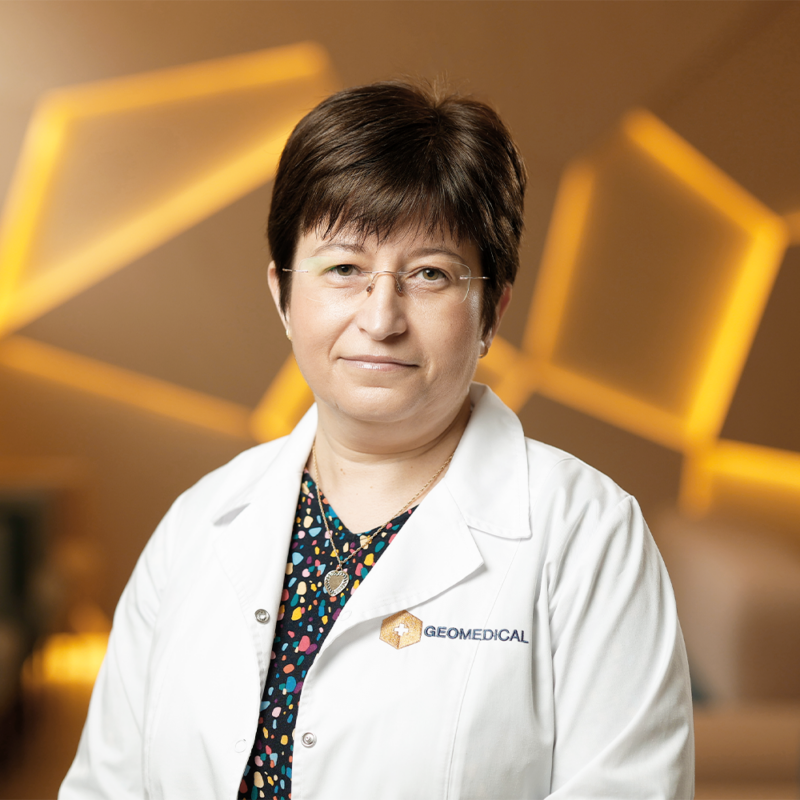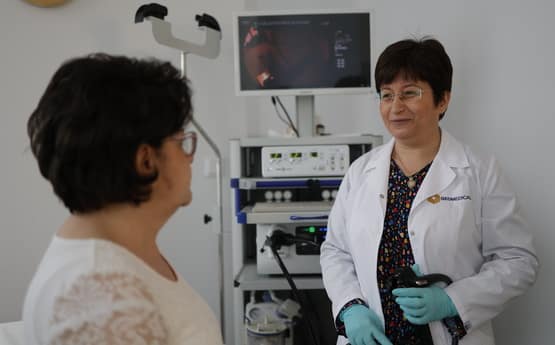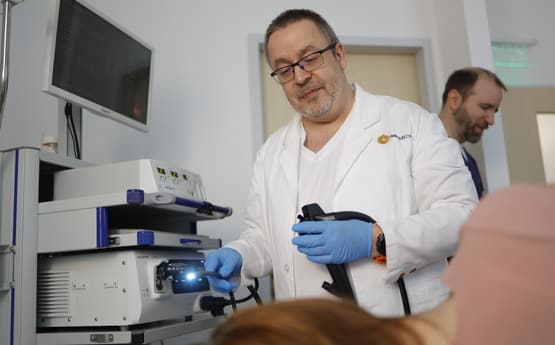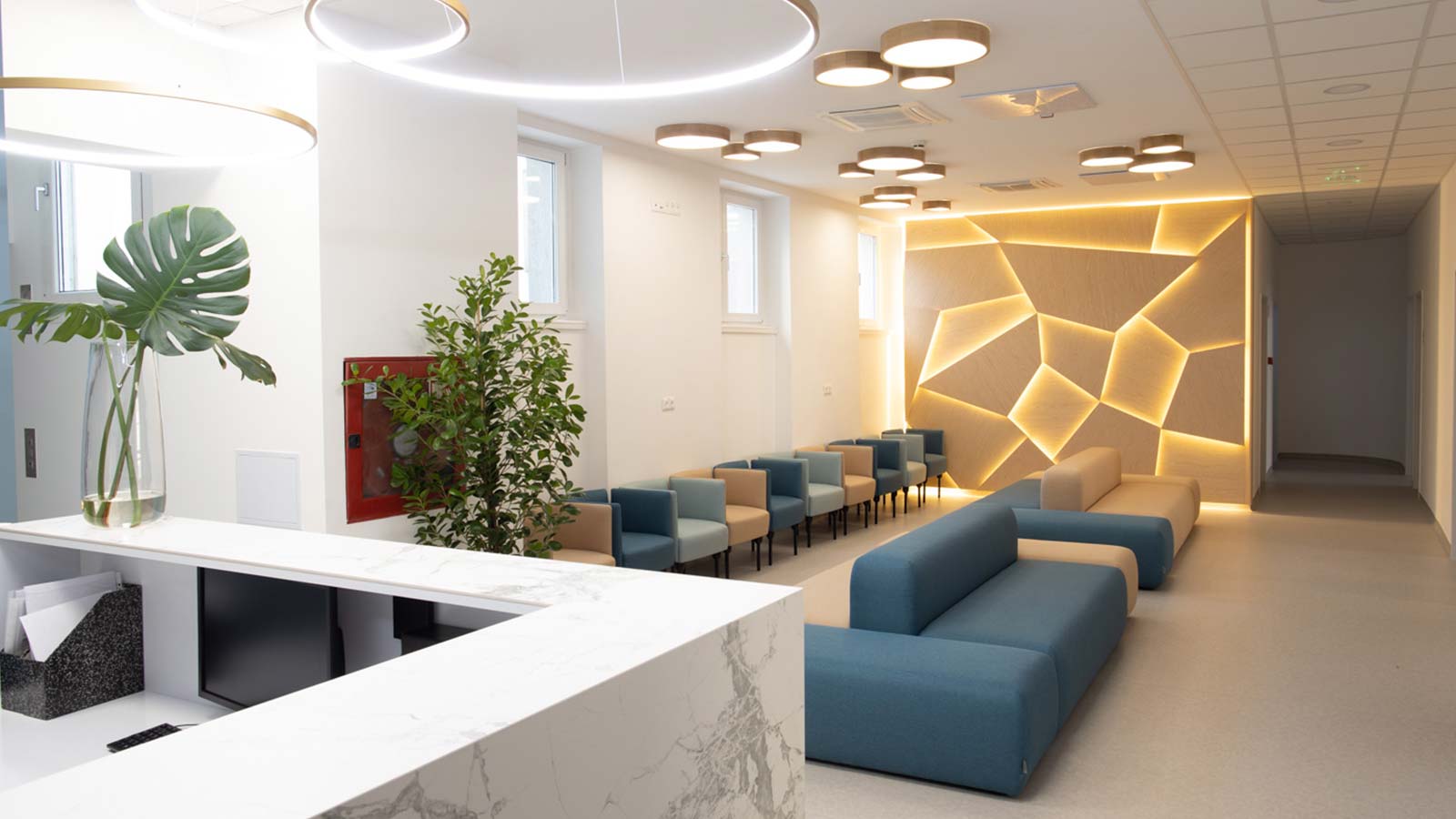

What does
Gastroenterology deal with?
The role of the gastrointestinal tract and associated organs (liver, pancreas), collectively known as the digestive system, is to extract and provide the necessary nutrients from the consumed food for the body.
Gastroenterology also deals with diseases of the stomach and duodenum (e.g., gastric ulcer, duodenal ulcer), gluten sensitivity, inflammatory bowel diseases (Crohn’s disease, ulcerative colitis), and tumors (polyps, stomach cancer, colon cancer)

When should you visit a Gastroenterologist?

How does a gastroenterological examination proceed?

Our specialist first conducts a detailed inquiry about your known diseases, medications, past surgeries, and finally, your complaints. To investigate lactose intolerance, you will need to drink a solution and then blow into a special device. Blood tests may be conducted for digestive disorders, food intolerances, and food allergies. In case of suspected gastrointestinal bleeding or bacterial infection, a stool sample may be required.
For a gastroscopy, a thin, flexible instrument (gastroscope) is inserted through the mouth to the stomach. The examination is unpleasant, but most patients tolerate it well. To avoid coughing or gagging, a throat anesthetic spray may be applied. During a colonoscopy, a similarly thin, flexible tube is used to visualize the sections of the bowel to be examined. This examination is also uncomfortable but typically not painful, and it is generally easier to tolerate than a gastroscopy. Upon request, these procedures can also be performed under sedation.
Additional Information
Food intolerance is a common problem, a digestive disorder where nausea, bloating, diarrhea, or even skin problems may occur after consuming certain foods. In lactose intolerance, the body cannot break down the lactose in consumed dairy products because the enzyme lactase, necessary for digestion, is either lacking or underactive in the intestines. Lactose intolerance can be detected using a H2 breath test or genetic testing from a blood sample. Eliminating lactose from the diet can resolve symptoms, and a dietitian can assist in creating the necessary meal plan. In some cases, oral lactase enzyme supplements may also be needed.
Other nutrients causing food intolerance can be detected via blood tests, with up to 220 nutrients checked at once for potential causes of symptoms.
In the case of food allergies, the problem is not a digestive disorder but an excessive immune response to certain components of the food. This can cause a range of symptoms from mild (e.g., itching, hives) to severe (anaphylactic shock – swelling of the throat, circulatory problems). If food allergy is suspected, a specialist consultation and blood test can detect the proteins formed in the immune reaction to specific foods.
Reflux disease is another common issue, where acidic stomach contents flow back into the esophagus, causing discomfort (heartburn, stomach pain, acidic taste) and, over time, inflammation or even ulcers in the esophagus.
In some cases, gastroscopy (gastroscopy) and colonoscopy (colonoscopy) may be necessary, during which a flexible tube, an endoscope, is inserted into the affected area, allowing for the examination of mucosal abnormalities and, if needed, biopsy samples can be taken to aid in diagnosis. Minor procedures (e.g., polyp removal) can also be performed during the examination.

Prices in Gastroenterology
Our Doctors in Gastroenterology





